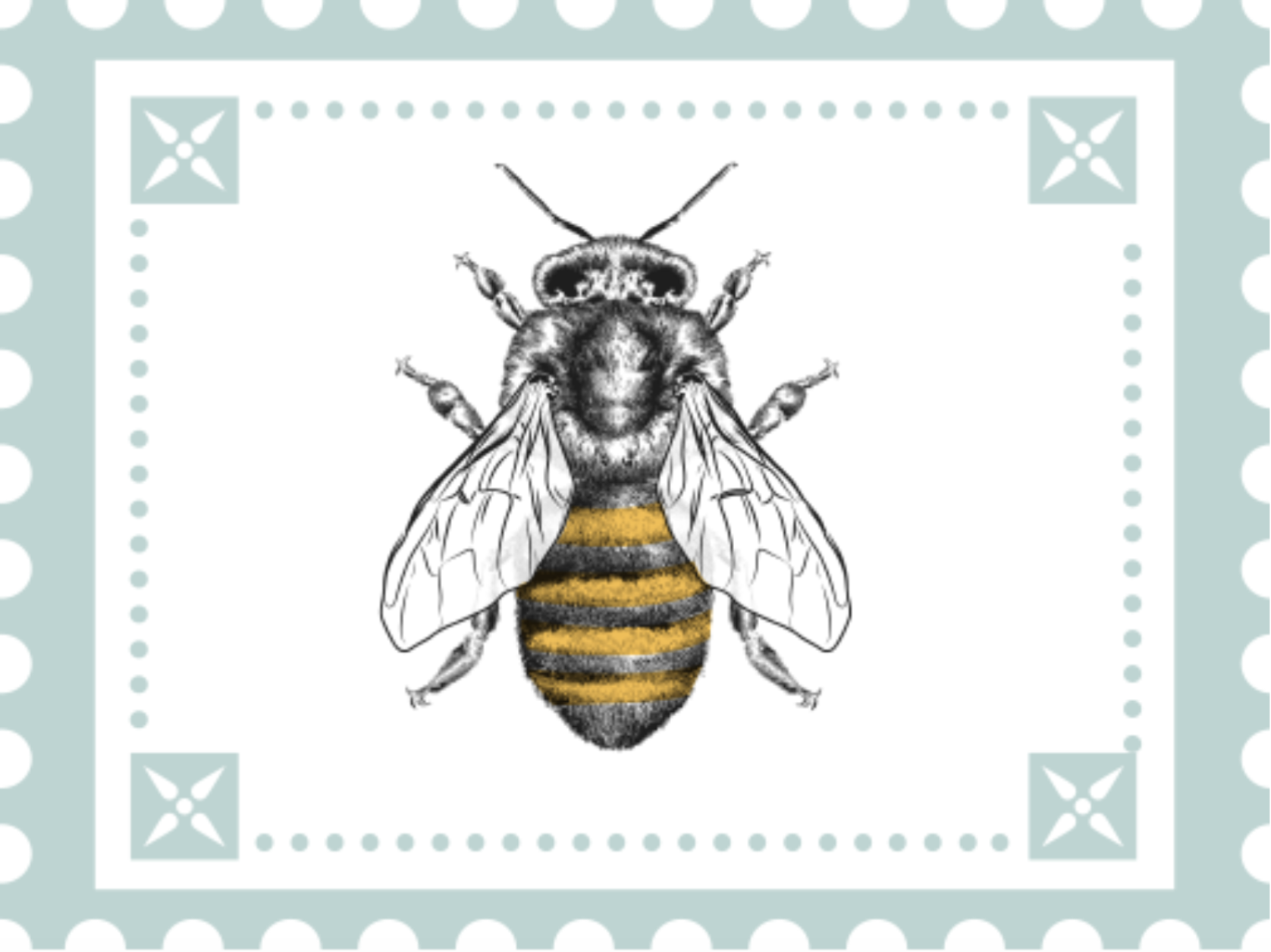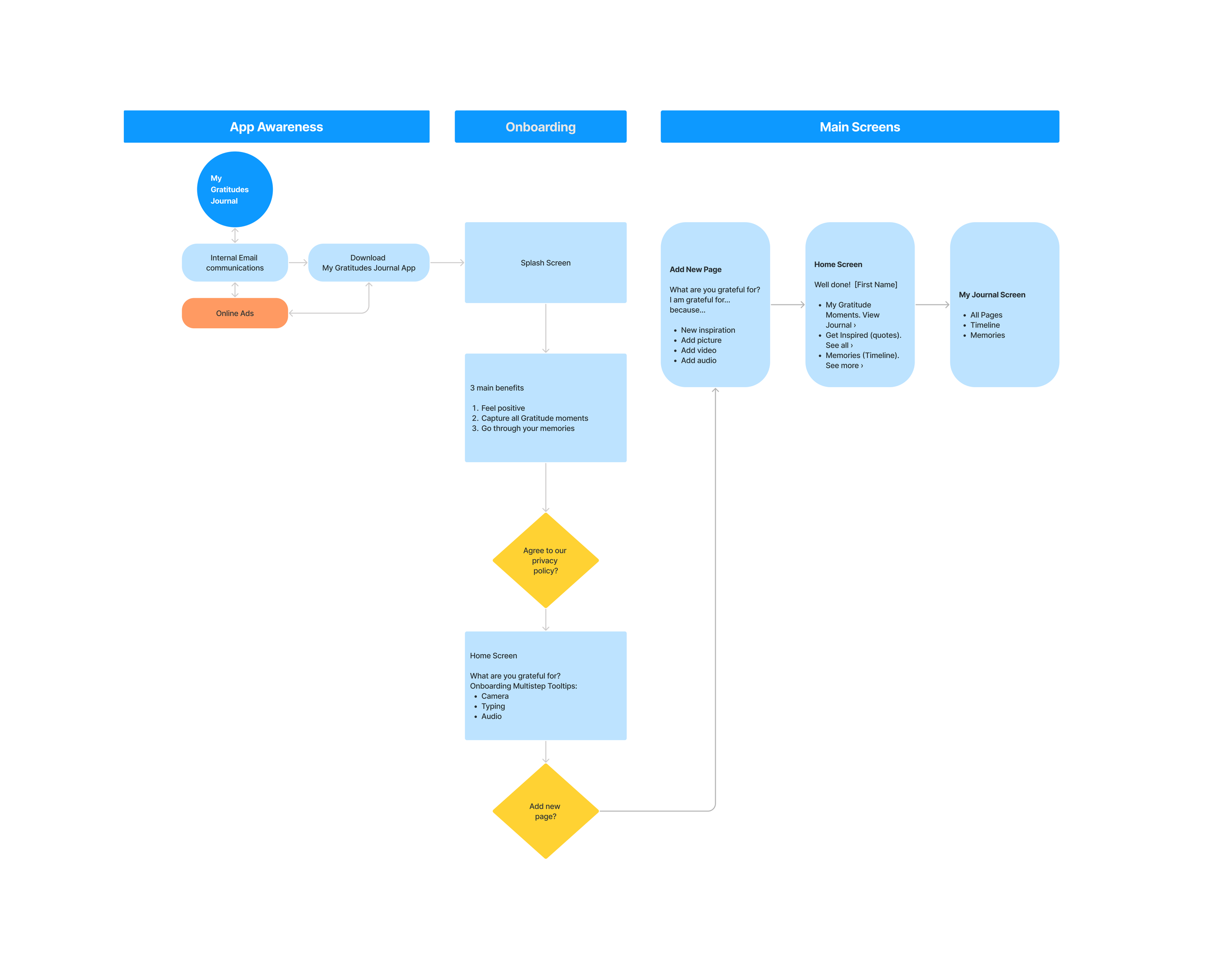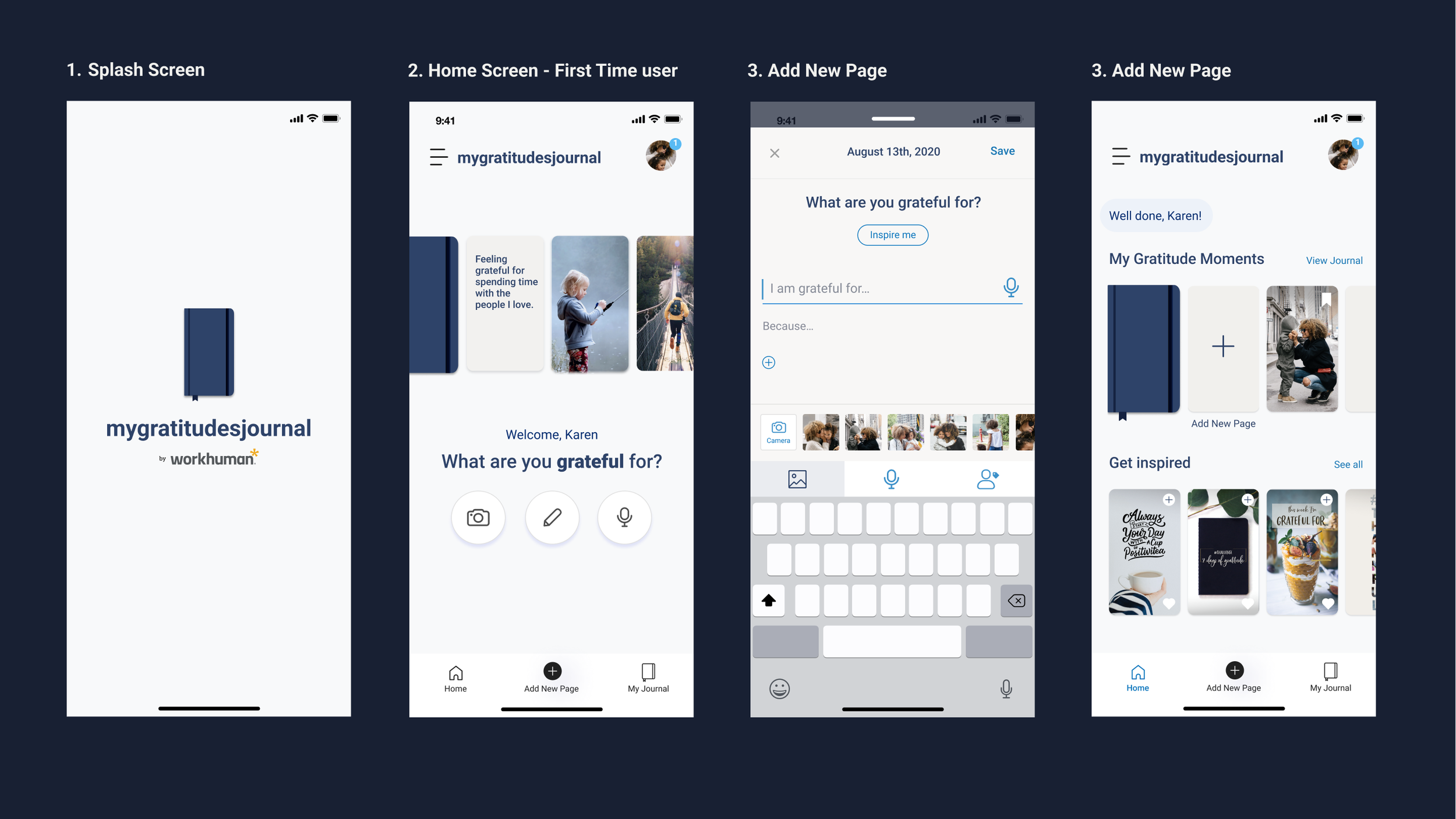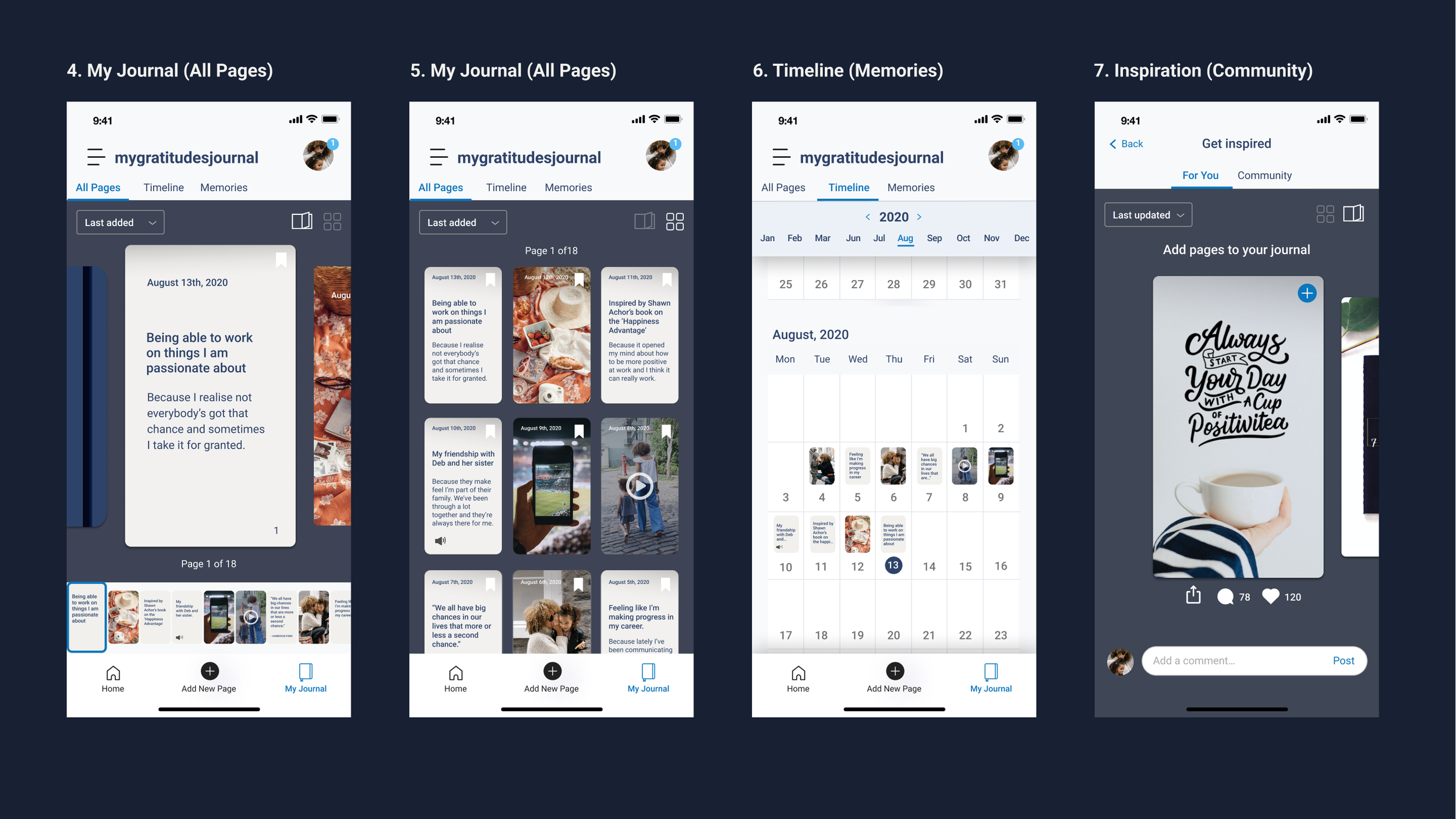Gratitudes Journal: Cultivating a culture of gratitude
Role: Senior UX/UI Designer
Overview
As a Senior UX/UI Designer, I played a pivotal role in the conceptualisation and design of the Gratitudes Journal, a new product vertical within the Workhuman Recognition System.
This mobile app aims to empower users to capture and reflect on moments of gratitude in their daily lives, fostering a positive mindset and reducing negative behavioural patterns.
The main objectives of this initiative were:
Deepening the relationship with Workhuman as a brand
Increasing levels of happiness at work and in personal lives
Driving a 15% increase in the usage of the Workhuman Recognition Platform in 2020
Achieving a 4-7% adoption rate among users, translating to potential revenue of $30M
Research Methodology
To uncover the market potential and design innovative features, the product research team embarked on a comprehensive research journey guided by the "Jobs to be Done" framework developed by Tony W. Ulwick.
Over a span of two and a half months, the research team conducted virtual workshops and surveys with senior stakeholders to address key research objectives, including:
Assessing the preference for physical gratitude journals versus digital applications.
Understanding the users of the existing products employ to document gratitude.
Exploring the potential link between gratitude journal usage and increased engagement with the recognition system.
Identifying the key motivators for expressing gratitude.
Uncovering User Needs
The research team employed various methodologies to gather insights and shape the product's direction:
Jobs Map: Story mapping the functional and emotional aspects of users' needs in a workshop format.
Customers Need Survey: Conduct a qualitative survey with 15 participants to rank the top 10 needs based on importance and satisfaction.
Value Proposition Workshop: Synthesizing survey findings to define the product's value proposition and business model.
Competitive Analysis: Comparing the proposed value proposition with similar solutions in the market to identify gaps and opportunities.
Design Sprint: Ideation, user journey flow, wireframing, and high-level prototyping to quickly validate ideas with the target market segment.
Usability Testing: Evaluating basic usability and heuristics to refine the product design based on user feedback.
Market Testing: Conduct a quantitative survey with 200 participants to rank the top 10 features based on importance and satisfaction.
Design & Usability Testing
My role involved the creation of the customer journey app flow, high-fidelity mobile app screens, and a prototype that could be tested amongst client users. Additionally, I oversaw the usability testing process to validate the initial user response and prioritise critical features for the minimum viable product (MVP) phase.
The usability testing and quantitative survey revealed positive feedback, with no major navigation issues reported. However, areas for improvement were identified, including:
Enhancing access to the app without requiring a work email.
Addressing privacy concerns regarding the fate of users' journals if they leave their company.
Exploring notification reminder campaigns to promote regular journaling habits.
Incorporating influencers to enhance the effectiveness of habit-building features.
Conclusion
Overall, the ‘Gratitudes Journal’ Jobs to be Done research and design prototype helped us understand the utility of following research methodologies from the very beginning and how strategy can have a clear testing path to increase the likelihood of success.



